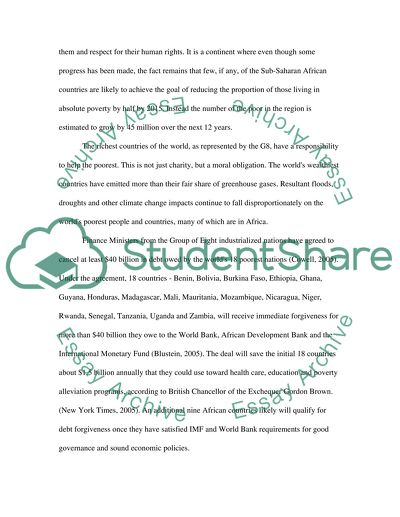Cite this document
(“Group of Eight and Poverty in Africa Essay Example | Topics and Well Written Essays - 2000 words”, n.d.)
Group of Eight and Poverty in Africa Essay Example | Topics and Well Written Essays - 2000 words. Retrieved from https://studentshare.org/miscellaneous/1516492-group-of-eight-and-poverty-in-africa
Group of Eight and Poverty in Africa Essay Example | Topics and Well Written Essays - 2000 words. Retrieved from https://studentshare.org/miscellaneous/1516492-group-of-eight-and-poverty-in-africa
(Group of Eight and Poverty in Africa Essay Example | Topics and Well Written Essays - 2000 Words)
Group of Eight and Poverty in Africa Essay Example | Topics and Well Written Essays - 2000 Words. https://studentshare.org/miscellaneous/1516492-group-of-eight-and-poverty-in-africa.
Group of Eight and Poverty in Africa Essay Example | Topics and Well Written Essays - 2000 Words. https://studentshare.org/miscellaneous/1516492-group-of-eight-and-poverty-in-africa.
“Group of Eight and Poverty in Africa Essay Example | Topics and Well Written Essays - 2000 Words”, n.d. https://studentshare.org/miscellaneous/1516492-group-of-eight-and-poverty-in-africa.


